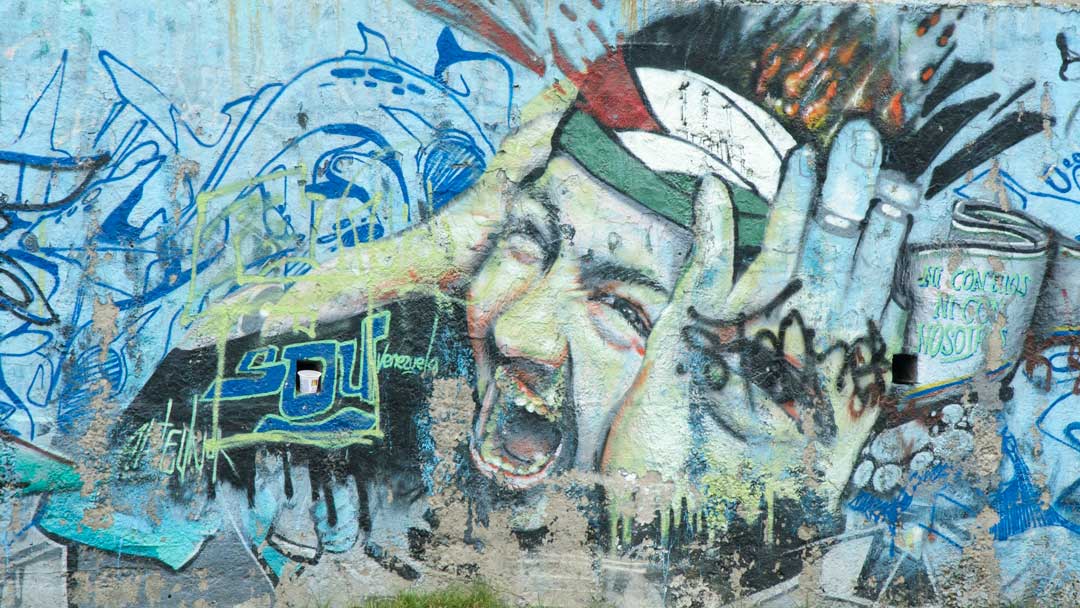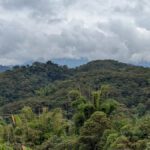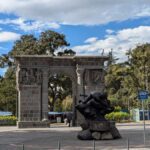South American protests are famous throughout the world. It isn’t hard to pull up pictures on the internet of burning tires and blocked highways in countries like Argentina, Colombia, Bolivia, and even our beloved Ecuador. It is easy to believe that protest is a way of life, not just a response to a recent government action. While protest is not a constant in most of South America, that doesn’t help when your trip is affected.
What is a tourist to do in the face of political protest? Read on and learn from our experience.
Recent Protest in South America
Today in Ecuador, the President declared a State of Emergency. Thousands of people are protesting in cities across the country. Why you ask? The federal government removed subsidies from gasoline and diesel products, raising the price at the pump as much as 123%. As you can imagine, the average citizen is unhappy. The scale of these protests make tourists think twice cancelling planned trips.
And it’s not just Ecuador. Last week, the President of Peru dissolved Congress. The Peruvian Congress then proceeded to declare the Vice President as the new President. Political unrest has made the press question who is actually in charge. While widespread protests have not happened, the potential for trouble has increased.
Last month in Colombia, students held an anti-corruption protest on the streets of the capital city, Bogota. Small scale protests like these are common place throughout South America. They are more easily avoided than most and you shouldn’t cancel your trip because of them. Instead, you should plan around them.
How To Plan Around A Protest
How is a tourist to know when a South American protest is going to impact their stay. Worse, when should we decide to end a trip or cancel our plans?
Few protests pop up without some kind of warning. There are a couple of ways to hear about them. One is to sign up for alerts through the US State Department. The program, called STEP (Smart Traveler Enrollment Program), sends alerts directly via text or email for the dates of your trip. Travelers signed up for the program would have received notification about today’s protests, though obviously not about the State of Emergency until after it had been declared (more on that below).
If you’re not a joiner, you can keep an eye on individual US Embassy alerts. For example, the US Embassy in Quito published an alert about today’s nationwide protests:
The Embassy has received reports of demonstrations and road blockades in and around Quito, Santo Domingo, Cuenca, and Esmeraldas as part of a nationwide transportation strike. Other cities may also be affected. There are reports of violence in some areas in the form of tire burning and glass bottles being thrown at vehicles. Transportation throughout Ecuador will be disrupted during the strike.
U.S. government personnel are being advised to utilize caution in moving within and between cities.
Information on protests is widely reported on public media and we encourage U.S. citizens to continue to actively monitor the situation until the strike concludes.
More Tips for Keeping In The Know
While STEP notifications can help keep us in the know, they aren’t great for planning ahead. The people who know more about what’s going on in their neighborhood are the very people you are staying with – the hotel or hostel staff, the neighbors around the Airbnb, the wait staff at the local cafe.
You can also keep an eye on Twitter which is widely used for political activity in Ecuador and the rest of South America. You might even use our Twitter List: Travel Updates Ecuador to help keep you up to date. Or you might check out the latest hashtags or keywords for the current protest. For example, for news about today’s strike in Ecuador, I searched using «Ecuador para nacional» and «Ecuador protestas.» Add the region, city, or town where you are staying to the search to find Tweets about the area you are visiting.
Avoid Protests As Much As Possible
If protests are taking place, avoid them. Do not see this as an opportunity to take photos (unless you have press credentials). This is not your make or break moment to become an international journalist! Protests have a way of becoming violent without warning and we don’t want you to be in a situation where you could become a target.
If you happen to get caught near a protest, do your best to leave the area. If, like us, you end up stuck in traffic waiting for a protest to clear, be patient. Follow the guidance of any police on site (yes, there will definitely be police arriving if they are not there already). Unfortunately, this happened on our last visit to Ecuador when a cooperative of small dairy operators protested the government’s fixed milk prices. We ended up delaying a trip by about four hours while protesters kept the road closed. There was no way to turn around. If we had checked our own Twitter list before departing, we would have had a head’s up. C’est la vie.
What if you agree with the protesters?
Even if you agree with protesters, do not join the protest. In many South American countries, there is some debate on the legality of non-citizens participating in such events. This has come up when foreign NGOs come in to support indigenous groups protesting mining and other intrusions on native lands. There are often great reasons to protest but unless you are willing to be arrested and held accountable for your fellow protesters actions, do not protest in another country. Find other ways to show your support.
When Protest Becomes A State of Emergency
Rarely, protest takes over a country in such a way that the political leaders declare a State of Exception, similar to a State of Emergency. The technical details between the two definitions are such that we prefer to use State of Emergency as most people have an immediate gut reaction to the term. When this happens, it means that normal controls are not sufficient for basic safety. Therefore, the government needs to mobilize additional help to control protests in one or more regions of the country. Today, Ecuador provides an excellent example. The sheer amount of people protesting has overwhelmed the normal police force. Blocked roads and intersections have made it difficult for emergency vehicles to operate in normal conditions. The government fears for the safety of the community at large.
International airlines are canceling flights, leaving passengers without means of leaving the country. Many airlines are providing food and lodging for customers caught in an unfortunate situation.
If you find yourself caught in a country during a State of Emergency or Exception, stay inside at your hotel or lodging. Contact your travel agency or local guide, if appropriate. If you happen to find this happening on the day or days immediately before your return home, contact the airline BEFORE going to the airport. Most airlines will cancel flights in this climate but will be working to reschedule flights as soon as possible. You might decide to contact the local US Embassy or Consulate. Odds are they will tell you to wait it out.
Canceling Your Trip Because of Political Protest
We are living in a time where political protest has a magnified impact, especially when the press pays attention. Protesters know that they are more likely to be heard when their protest includes an element that attracts reporters. Recent examples include countries outside of South America like France and Hong Kong. The more news the protesters make, the better for their cause. Unfortunately, this same impact hurts tourism. Few tourists want to visit a country that is held hostage to road closures and massive demonstrations.
While we never expect protesters to take tourism into account, we do expect tourists to take protests into account. If the country you want to visit is in the middle of constant upheaval, chose another place to spend your tourist dollars. We sincerely hope that those are not famous last words as we want all of you to visit Ecuador. We do not know how long these current protests will last. Unless your trip is planned for the next few days, please do not cancel your upcoming trip. Give the political process a chance to work its way out.
If your trip is in the next few days, contact your airline. They may be willing to change your dates of travel to a more convenient time for everyone involved.
Does Travel Insurance Cover Trips Impacted by Political Protest?
If you are hoping to get a portion of your trip refunded due to political protest, be warned that not all travel insurance will cover these situations. Ask the insurance broker before you buy. At the very least, check for words like State of Exception or State of Emergency to see if the policy would work when the government makes those declarations.
An Update Days Into the State of Emergency in Ecuador
Update as of October 6, 2019
While Ecuador is still officially experiencing a State of Emergency, many tours and tour operators are continuing as scheduled. Feel free to check out our Facebook feed as we share photos of some of these successful trips!
The Ecuadorian military have cleared several major highways of protesters to make transportation possible. That does not mean that all roads are clear. However, protests have been contained to specific areas and are more readily avoided by drivers and tourism teams who know the region. It’s not a perfect time to visit, but it also isn’t necessarily detrimental to your trip. Do come with your patience intact.













0 comentarios